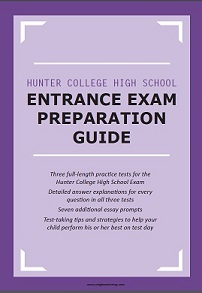The SAT or ACT | Which is Best for NYC Students?
/As you think about beginning your SAT or ACT test prep, you probably have many questions about the two tests. Which one matters more? Which one do more colleges accept? Which one “looks better,” and which one is right for you?
These are all questions that students all over the NYC metro area are feeling right along with you. While, ultimately, the answers to each of these questions depends on each student’s strengths, educational goals, and college choices, it may be helpful to consider the following issues as you begin looking at the ACT and SAT tests.
Traditionally, the SAT is thought of as the test for Eastern universities and more “elite” colleges elsewhere in the country – what a New York City student might be more likely to take. The ACT is commonly viewed as a Midwestern test, valid for entry at a big state school or perhaps a lower-tier small liberal arts college located in the middle of the country. While these stereotypes persist, they are not particularly accurate, and each student needs to consider several factors before making a choice to take one test or both.
Almost every college in the country now accepts both the SAT and the ACT. Colleges do not perceive applicants differently depending on which college admittance exam an applicant submits (you can even submit both at many colleges, if you so desire). There is no stigma attached to applying to Dartmouth with the ACT, or to the University of Minnesota with the SAT. While many NYC-based students will choose to apply to schools that are more “traditionally” SAT-oriented, if you find your skills are more suited to the ACT, there is no harm in applying to one of those schools with an ACT score. That being said, check the entrance requirements for your schools of choice before you begin your test prep journey.
ACT Test Prep or SAT Test Prep
Before you decide, take some time to research both the SAT and ACT test and assess your strengths on both of them, as there are key differences between them. The ACT is assessed on a scale of 0-36, with four multiple-choice sections worth 36 points each.
The English section tests grammar, punctuation, sentence structure, and rhetorical skills. The Math section includes topics from algebra, geometry, and trigonometry, allowing calculator use throughout. The Reading section assesses reading comprehension through passages in prose fiction, social science, humanities, and natural science. The Science section evaluates the interpretation, analysis, evaluation, reasoning, and problem-solving skills in natural sciences, using data representation, research summaries, and conflicting viewpoints
The scores from the four sections are than averaged for an aggregate final score. This aggregate score is what concerns colleges most, rather than scores on individual sections. This can work in your favor – if you are not great at math but excellent at science, a high science score can counterbalance a low math score, for instance.
A perfect score on the SAT is a 1600, and the test is made up of a critical reading sections and a math section. The Digital SAT comprises two main sections: Evidence-Based Reading and Writing (EBRW) and Math, with each section containing multiple-choice questions. The EBRW section focuses on reading comprehension, grammar, and analysis of texts, while the Math section covers topics such as algebra, geometry, and data analysis. Calculator is allowed at all times, including the use of an in-built graphing calculator. These tests are also individually scored, but unlike the ACT, colleges might take scores on math versus reading into consideration and may view large discrepancies between different sections unfavorably. This depends on the school, of course, but in general, colleges will look at aggregate scores of the ACT and both aggregate and by-section scores of the SAT.
There are a couple of other differences on the SAT and ACT tests to take into consideration. The essay question on the ACT is optional; there is no essay question on the SAT. Wrong answers are not penalized on the SAT nor on the ACT. The ACT has English, math, reading, and science sections; the SAT consists only of critical reading, and math. While you may have a clear idea which of these tests would be better for you, it could still be wise to take practice tests “cold,” without preparation, and see on which you score higher.
And remember, also, there is no limit to how often you can take each test. If you do not want to put all of your eggs in one basket, you also have the option of splitting your prep time between both tests and submitting your scores from both to each of your colleges. Students have been known to take each test upwards of ten times. While this may be a little extreme, the example should serve to illustrate the general principle that you should not be afraid to take a test again if you are dissatisfied with your initial score!
The main point to remember is that you have options. Just because you are applying to mostly East Coast schools does not mean you should feel locked into the SAT; if you are applying mostly to schools elsewhere in the country, don't feel pressured to take the ACT. You should think of the two tests as equal in prestige and either focus more on the test that is right for you or devote your prep time to each test equally.


